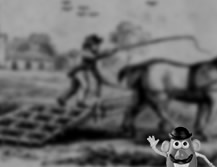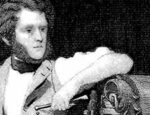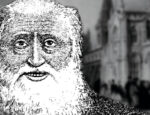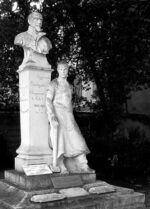Description
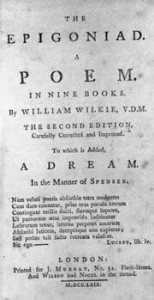 Be puzzled by William Wilkie (1721-1772), the ‘Scottish Homer’, or ‘potato Wilkie’, author of a 9-book epic on ancient Thebes, farmer, professor and Presbyterian minister at Ratho.
Be puzzled by William Wilkie (1721-1772), the ‘Scottish Homer’, or ‘potato Wilkie’, author of a 9-book epic on ancient Thebes, farmer, professor and Presbyterian minister at Ratho.
The son of a farmer who had fallen on hard times, Wilkie’s aptitude for classical languages was spotted at Dalmeny parish school. At Edinburgh University he baffled leaders of the Scottish Enlightenment — Adam Smith and David Hume. A friend named Henry Mackenzie recalled him as ‘superior in genius to any man of his time, but rough and unpolished in his manners, and still less accommodating to the decorum of society in the ordinary habits of his life.’
Wilkie was forced to leave university when his father died, leaving him with nothing but an unexpired lease of a farm in Midlothian, some livestock, and three dependent sisters. He was an outstanding agriculturalist who made major advances in the cultivation of the potato. A biographer recalls that while he worked at his crops ‘with the most laudable industry and perseverance, labouring much and frequently with his own hands, he did not neglect those studies which his classical education had placed within his reach. It was here and while labouring with scythe and sickle, ploughing and harrowing, that he conceived, and at intervals of leisure, in part wrote his poem of the Epigoniad.’ The epic, in rhyming couplets, is heavily influenced by Pope, steeped in first-hand knowledge of Homeric Greek, and virtually unreadable.
Although he became relatively prosperous, being appointed to a Chair in Natural Philosophy at St. Andrews, Wilkie was inveterately mean with money, saying to the end of his days, ‘I have shaken hands with poverty up to the very elbow, and I wish never to see her face again.’ He seems to have identified physically with the labouring class. His biographer reports that he slept in large piles of dirty blankets, and had an ‘abhorrence of clean sheets… On one occasion, being pressed by lady Lauderdale to stay all night at Hatton, he agreed, though with reluctance, and only on condition that her ladyship would indulge him in the luxury of a pair of foul sheets.’ He can’t have smelled pleasant, either: ‘He used tobacco to an immoderate excess, and was extremely slovenly in his dress.’ Little wonder that Charles Townsend said that he had ‘never met with a man who approached so near to the two extremes of a god and a brute as Dr Wilkie’.

